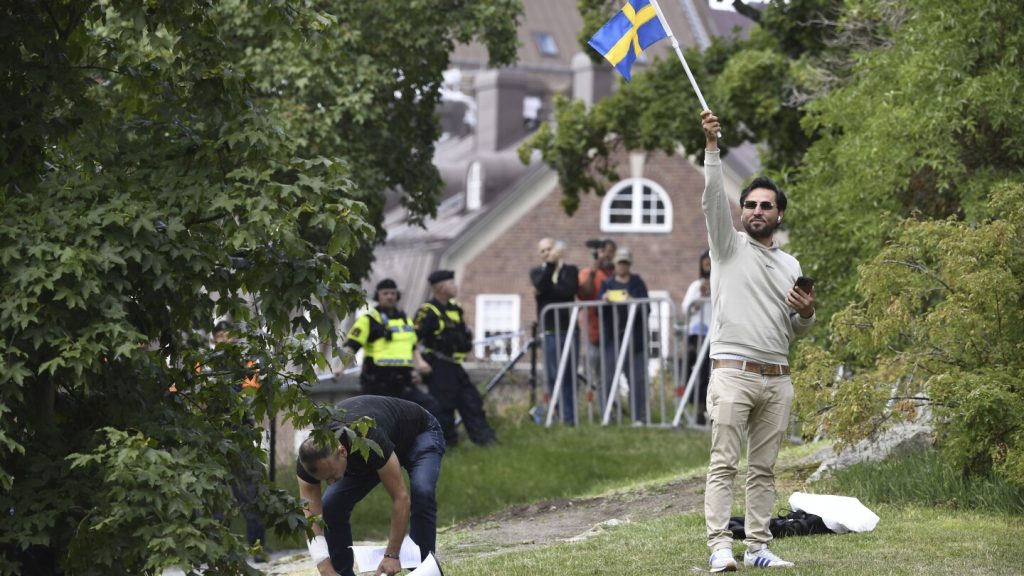Following his provocative Quran burnings in Sweden, Salwan Momika, a 37-year-old Iraqi man, has announced his plans to seek asylum in neighboring Norway after facing a deportation order from Swedish authorities. Momika, who has gained worldwide attention for his controversial actions, claimed that Sweden only accepts terrorists for asylum while expelling philosophers and thinkers like himself. His videos of Quran burnings have sparked anger and unrest in several Muslim nations, leading to riots in various places.
The backlash from Momika’s Quran burnings has had wider implications, such as delaying Sweden’s NATO membership which was recently finalized. His actions garnered attention in NATO member Turkey, leading to the country vetoing Stockholm’s bid to join the military alliance for an extended period. Swedish authorities had revoked Momika’s residence permit last October, citing false information on his application. While he was set to be deported to Iraq, concerns for his safety have put the deportation on hold as Momika believes his life could be in danger in his native country.
Despite having been granted a residence permit in Sweden in 2021, Momika’s deportation has been temporarily halted for security reasons. His current permit is set to expire on April 16, prompting his decision to seek asylum in Norway where he feels welcomed and respected. Momika claimed to have already entered Norway and was en route to the capital city, Oslo. However, there has been no immediate comment from Norwegian authorities regarding his asylum request.
Momika’s case highlights the complex issues surrounding immigration and freedom of expression in European countries like Sweden and Norway. While his Quran burnings have stirred controversy and raised questions about incitement against ethnic groups, the debate over asylum and deportation policies in these nations continues to be a contentious issue. Momika’s choice to seek asylum in Norway reflects his belief that he will find a more welcoming environment in the neighboring country, where he hopes to avoid the perceived lack of respect he experienced in Sweden.
As Momika moves forward with his plans to seek asylum in Norway, the implications of his actions and the response from Swedish and Norwegian authorities will be closely monitored. The debate over freedom of expression, immigration policies, and the balance between security concerns and individual rights remains at the forefront of the discussion. Momika’s case serves as a reminder of the complexities and challenges faced by individuals navigating immigration processes and expressing controversial viewpoints in a globalized world where cultural, religious, and political sensitivities often clash.


